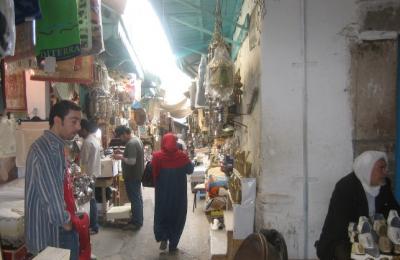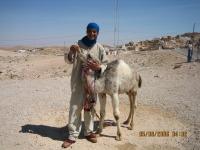We were scheduled to reach the barracks of the loggers by nightfall. We made it, but could not stay there - to our dismay, the barracks was empty and the door was locked. We didn’t know which was further away, the town that we had come from, or the village, which was our destination for the next day. We went on. It had got dark. There was an ominous silence. From time to time the moon appeared from behind the clouds and tree-tops. If we communicated at all, it was in whispers. We arrived in the village. There too, everything was quiet. No dogs barking, and no lights in the windows. Desperately, we knocked on doors and windows. No response. It was the middle of the night and people were terrified of someone knocking on the door at night. But one house let us in. It had become colder during the night. When we set out in the morning, it could have been as much as 40-45 degrees below. Anyway, the cold was better than a blizzard.
I don’t know what would have happened if we had been overtaken by a blizzard.
In late afternoon, we arrived at a prison camp. We had no choice - we had to spend the night there. The camp looked like any other prison camp -it was surrounded by a high wooden fence, topped by many lengths of barbed wire, had guard towers built into the corners, and some buildings outside the camp compound. We figured that one of the out-buildings had to be a stable and headed towards it. We went in, and our assumption proved to be correct. I was probably still weak from my illness and exhausted from our journey. According to Eva I had immediately curled up in a manger and fallen asleep in the hay. Apparently a bear-cub had also been nosing around in the stable. Eva placed it in the manger with me, to keep me warm, and I allegedly slept hugging a bear-cub. Unfortunately I don’t remember any of this myself, but I can record as a fact in my life a short hibernation with a bear.
When it got dark, a prison guard took us into the warmth of his home, which was a small one-room shack close to the camp fence. We had to sleep on the floor, next to the hatch leading down to the cellar. No doubt the guard put himself at risk taking us in for the night. We were told to quietly go down into the cellar if there was a knock on the door, or if we noticed anything suspicious outside the house. Early in the morning we were taken back to the stable. And then we had a stroke of luck - a horse-drawn transport was going to the railway-station. We were allowed to go along.
Advertisement / Reklaam
Advertisement / Reklaam
A large part of that day was spent in traversing an area where there had been a forest-fire. Spiked black trunks, several meters long, stuck out of the fluffy white snow.It looked like a huge, bewitched cemetery. We would have dreaded walking through this bleak landscape, just the two of us, on our own...
The trains at the Kirs station were few and far between. The cold waiting room was full of people. From time to time they amassed in front of the one small wicket. Several days went by before we could finally leave. At Jar station we had to transfer to the Leningrad train. There was a repeat of the scene at Kirs station. In Leningrad we got off the train without luggage. Part of of our luggage had been the provisions - consumed long since. The other part had been shoes. We were going to exchange our bark slippers and footrags for shoes before we arrived in the big city. We abandoned our bag with the slippers, the foot-rags, two tin mugs and a spoon, in the car under a seat.
We arrived in Tallinn in the morning when it was light. It was bitter cold. Ahead of us rose Toompea , and sleighs and drivers stood waiting for travellers in front of the station. The horses had harnesses with jingling bells and bags of hay strapped onto them. At first sight, it seemed that nothing had changed. Eva took hold of my hand, squeezed it hard, and started to cry.
In spite of the fact that I was nearly fourteen, I was still I a child in some repects. I had built a castle-in-the-air, just waiting for us in Estonia, based on my childhood memories. This image had sustained me in Russia. But now not a day went by, without real life relentlessly tearing down that castle.
We went to live with mother’s sister Aunt Lo. Her house on Tina Street had remained intact through the war. The ceiling and roof over one room had been damaged, and the piece of shrapnel was still sitting on the mantelpiece, but the walls of the house were standing.
Advertisement / Reklaam
Advertisement / Reklaam
It was February, in the middle of the school year. I was nearly fourteen. I had completed Grades One and Two, spent a few months in Grade Three and even less time in Grade Five. All of that “education” had been acquired in Russian. I was placed in Grade Five at the Raua Street School. In the spring I was presented the first “proof of education”, I had received in my life - a Grade Five report card from an Estonian school.In 1953, after graduation from Tallinn’s 20th High School I had my High School Graduation Diploma. I had to go through eight schools to get there.
(To be continued)




















